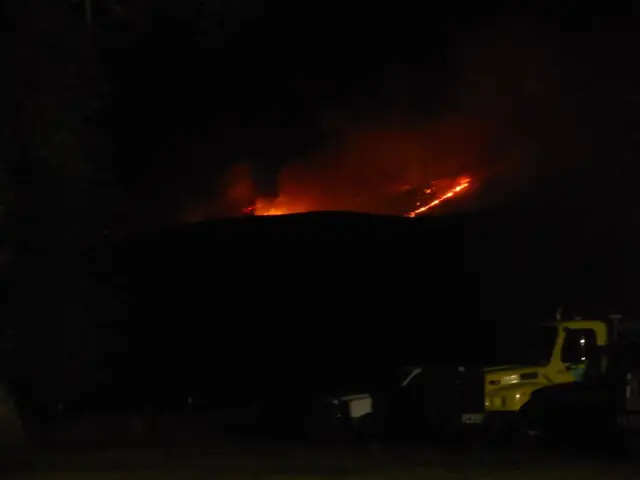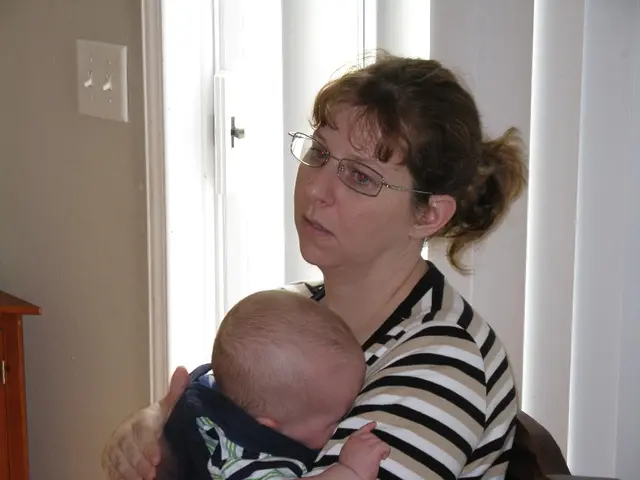Reduced housing assistance for Nagorno-Karabakh refugees announced by Armenia.
Armenia Delays scaling back Refugee Aid Program amid Criticism and Struggles for Integration
The Armenian government has disclosed plans to curb a humanitarian initiative offering housing subsidies to refugees from Nagorno-Karabakh, stating the decision aims to foster self-reliance and expedite the integration of refugees into the society. However, this move is predicted to escalate discontent among the approximately 105,000 Karabakh refugees currently receiving aid.
Since November 2023, Armenia has handed out a monthly stipend of 50,000 drams (around $125) to Karabakh refugees who lack housing or government shelter. This aid has proven crucial for the majority of Armenians who fled Karabakh following Azerbaijan's conquest of the entire region in September 2023.
During a cabinet meeting in late November, the government approved a plan to gradually decrease subsidies, starting in April 2025. Only specific categories of refugees – children, college students, pensioners, and disabled individuals, accounting for around 54,000 refugees according to government estimates – will continue receiving aid. The payments for eligible individuals will decrease to 40,000 drams by April and further to 30,000 drams by July. Working-age refugees who do not fall under these categories will lose benefits.
Armenian Prime Minister Nikol Pashinyan justified the changes, stating the measures are designed to spur refugees into seeking employment or entrepreneurship opportunities. "It is essential to establish an environment where individuals can support their families through their own efforts," Pashinyan explained.
The Armenian government has faced resistance encouraging Karabakh Armenians to apply for Armenian citizenship, as doing so would result in losing temporary refugee status. As of November 2024, only around 1,500 Karabakh residents have applied for citizenship, while over 90,000 have received temporary protection status as refugees. The country's Labor Ministry states that over 25,000 refugees have already secured employment or started businesses.
The reduction in allowances coincides with a government housing program launched in June 2024. This initiative offers financial grants ranging from 2 million to 5 million drams ($5,000-$13,000) per person to refugees who purchase or construct homes, primarily in rural areas. The program is part of a broader endeavor to combat housing shortages and depopulation in these regions.
Critics, including refugees and advocacy groups, have criticized the program, arguing that the grants fail to cover increasing property prices even in rural areas. Skeptics also question the adequacy of infrastructure and limited job opportunities in rural locations as obstacles to participation.
Officials have faced backlash regarding strategies regarding Karabakh, a tension that predated the total loss of the territory to Azerbaijan. Artak Beglaryan, a previous top Karabakh official, accused the government of lacking a clear strategy for supporting refugees. He cautioned that government policies might escalate emigration rather than promoting integration.
The Armenian government has allocated over 75 billion drams ($190 million) to support the refugees since September 2023, with nearly 90% of funding coming from the state budget. The revised aid program is projected to cost 30.5 billion drams ($78 million) in 2025. Armenian officials have applied for international aid and Western support to tackle the refugee crisis.
Government officials defend the shift, asserting that it prioritizes aid for vulnerable groups while bolstering economic self-sufficiency. Despite this, ongoing housing shortages, escalating rents, and limited employment opportunities persist as significant hurdles for many refugees seeking to integrate.
- The gradual reduction in housing subsidies for Karabakh refugees in Armenia, along with the continuing emphasis on self-reliance through employment and entrepreneurship, indicates a shift in the government's business-related policies and legislation that is rooted in politics.
- The Turkish-Armenian relations, heavily influenced by politics, policy-and-legislation, and general news, remain a crucial factor in the living conditions of Karabakh refugees, with the Armenian government's strategies for integration and correlated economic reforms facing criticism and ongoing struggles for refugee adaptation.







